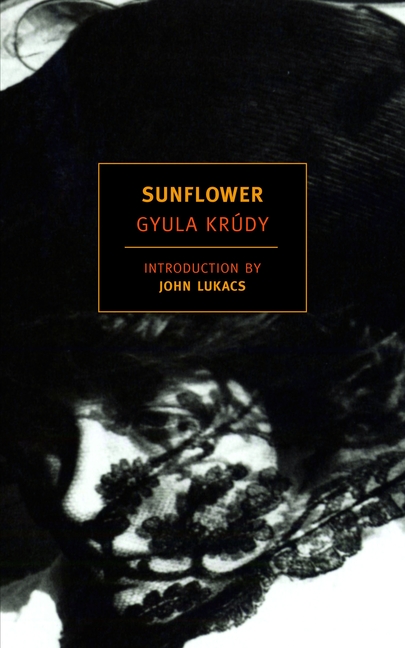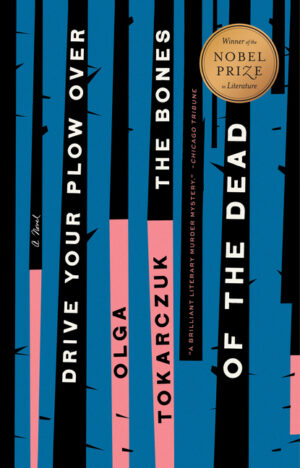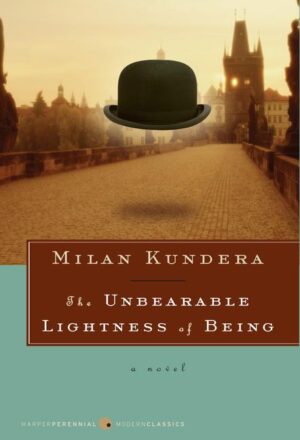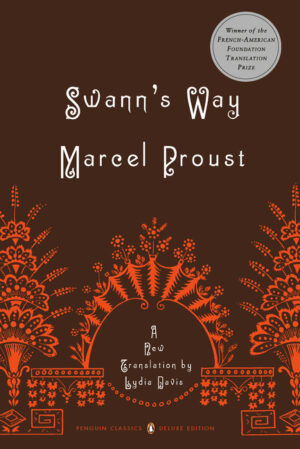"Krudy, a well-known early 20th-century Hungarian author, produced a prolific body of 60 novels and 3000 short stories before dying in relative obscurity. In this novel, appearing in English for the first time...
Krudy eulogizes a way of life already disappearing as the work was being written and presents a glimpse of rural Hungary that is at once comic, nostalgic, romantic, and erotic. The introduction by John Lukacs provides insight into
Krudy's life and works. Recommended for academic collections or large public libraries." –
Library Journal "Maybe I should just write, "Read
Sunflower" and leave it at that...Krudy has been compared to his great contemporaries (Marcel Proust, James Joyce, Joseph Roth) and his great successors (Isabel Allende and Gabriel Garcia Marquez). Other comparisons come to mind. His work purrs with the fin-de-siecle urbane eroticism in Arthur Schnitzler's stories. His shifting viewpoints and streams of consciousness recall Virginia Woolf. Like Kafka, he's willing to let dream and reality mingle. He's ironic and wise about the human heart and life's futility, like Chekhov. His fond portrayal of rural life evokes the Levin scenes in
Anna Karenina...
Sunflower is an erotic carnival...The more translations of this untranslatable genius there are, the closer we'll be to his shimmering, melancholy world." –
Los Angeles Times "Gyula Krudy...a Hungarian Proust." –
The New York Times (Charles Champlin)
"Gyula Krudy, a master of Hungarian prose..." –
The New York Times (Ivan Sanders)
"[Krudy's] literary power and greatness are almost past comprehension...Few in world literature could so vivify the mythical in reality...With a few pencil strokes he draws apocalyptic scenes about sex, flesh, human cruelty and hopelessness." –Sándor Márai
"For those who like Hungarian music enough to give Hungarian writing a try, I'd particularly recommend Gyula Krudy's novel
Sunflower, set in the marshy, birch-covered region of northeast Hungary...Historian John Lukacs has compared Krudy's writing to the sound of a cello." –Music Web International (Lance Nixon)
"Krudy writes of imaginary people, of imaginary events, in dream-like settings; but the spiritual essence of his persons and of their places is stunningly real, it reverberates in our minds and strikes at our hearts." –
The New Yorker (John Lukacs)
"There were few outside, actual events in Krudy's life...he was always conscious of his landed gentry origins yet he preferred the company of the poor, the simple, the dispossessed... he spent most of his life in the capital...He knew every street, every inn, almost every house. For him Budapest was Paris and London, Rome and New York; I don't think he spent more than a few months of his entire life away from Hungary." –Paul Tabori
"Gyula Krudy's luminous and willful pastoral, people with archaic, semi-mythical figures-damned poets and doomed aristocrats, dreamily erotic hetaerae and rude country squires-is pure fin-de-siècle, art nouveau in prose for which I can't think of a real Anglo-Saxon or even Celtic-English literary equivalent... approach him and his
Sunflower as a happy stumbling on an extraordinary attic of the rambling house of the European imagination, strangely lit, and crammed with richly faded dreams." –
The Hungarian Quarterly (W.L. Webb)





